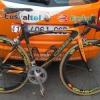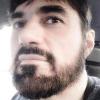
Cancer Knowledge
#31
Posted 26 February 2009 - 06:57 PM
I believe this is Horne and Picard's study.
http://www.psychosom...stract/41/7/503
Some of David Kissen's and other authors' studies.
http://www.pubmedcen...i?artid=1953652
http://www.psychosom...nt/25/4/390.pdf
http://www.psychosom...nt/34/5/395.pdf
http://psy.psychiatr...t/full/46/2/123
http://www.psychosom...nt/65/4/588.pdf
http://www.psychosom...nt/30/3/324.pdf
http://www.psychosom...nt/48/8/549.pdf
http://www.psychosom...nt/49/3/302.pdf
http://www.psychosom...nt/41/4/287.pdf
http://www.psychosom...nt/40/8/585.pdf
http://www.psychosom...int/43/1/35.pdf
http://www.psychosom...stract/24/2/133
http://www.psychosom...nt/50/2/192.pdf
http://www.psychosom...nt/39/4/264.pdf
http://www.psychosom...nt/44/6/491.pdf
http://www.psychosom...nt/30/6/891.pdf
#33
Posted 12 March 2009 - 06:08 PM
#34
Posted 14 March 2009 - 07:06 PM
http://www.ncbi.nlm....l=pubmed_docsum
http://www.ncbi.nlm....l=pubmed_docsum
http://www.ncbi.nlm....l=pubmed_docsum
http://www.ncbi.nlm....l=pubmed_docsum
http://www3.intersci...in.html,ftx_abs
http://www.ncbi.nlm....l=pubmed_docsum
http://www.ncbi.nlm....l=pubmed_docsum
http://www.ncbi.nlm....l=pubmed_docsum
http://www.ncbi.nlm....l=pubmed_docsum
http://www.ncbi.nlm....l=pubmed_docsum
#36
Posted 21 March 2009 - 07:38 PM
Rabdosia rubescens, one of the herbs used in PC-SPES.
http://www.chinesehe...herb-p-615.html
http://www.acuatlant...ls-p-26246.html
http://mct.aacrjourn...bstract/4/4/578
http://www.ncbi.nlm....l=pubmed_docsum
http://www.ncbi.nlm....l=pubmed_docsum
http://www.ncbi.nlm....l=pubmed_docsum
http://www.ncbi.nlm....l=pubmed_docsum
http://www.ncbi.nlm....l=pubmed_docsum
http://www.ncbi.nlm....l=pubmed_docsum
http://www.ncbi.nlm....l=pubmed_docsum
#38
Posted 27 March 2009 - 08:35 PM
Interesting article.
http://getwellnatura...eb-Mar-2009.pdf
Hi Tham,
Thanks for all your posts. I was wondering if you could summarize what you are finding instead of providing numerous links. Its really hard to see what you are talking about with outward links. I'm very interested in this topic but the a discussion about the links you are providing would be nice....
#39
Posted 28 March 2009 - 06:08 PM
As I surf Medline and the net searching for info on cancer-fighting
supplements, herbs and drugs, or anything pertaining to cancer
itself,such as psychological causes, and I find anything interesting
or significant, I just post them here. I admit they are a bit
haphazard.
The thread is basically as is described - "Cancer Knowledge".
Anyway, in the post on Rabdosia rubescens, PC-SPES was earlier
described in my thread on "Small Cell Lung Cancer, Drugs and
Supplements".
PC-SPES is a Chinese herbal formula originally developed by a
Chinese herbalist in the US for hormone refractory prostate cancer.
It was effective, and some 10,000 men with HRPC in the US and
Canada were surviving for years on it, holding their cancers at bay
and keeping their PSA markers down.
However, contamination with warfarin at that factory in China
where the herbs were sourced from resulted in bleeding in
some patients and a few fatalities. The media jumped on this.
The developers, a Chinese elderly couple, were indicted and
their business closed down, resulting in an outcry from the
above prostate cancer sufferers to no avail.
PC-SPES 2 is a revised formula made in another factory in the UK.
As you can see from the study by David Sadava, PC-SPES is also
effective in small cell lung cancer since it also regulates several
signalling proteins, including Bcl-2, caspase 3 and p21.
A very common Chinese herb, Oldenlandia diffusa, actually
outperformed PC-SPES agaiinst SCLC in David Sadava's study.
There is only one other Chinese herb with activity by itself
against SCLC which I have found so far - Lindera strychnifolia.
#40
Posted 29 March 2009 - 05:04 PM
as morphine-sparing options in cancer pain.
http://www.ncbi.nlm....l=pubmed_docsum
http://www.ncbi.nlm....l=pubmed_docsum
http://www.ncbi.nlm....l=pubmed_docsum
http://www.ncbi.nlm....l=pubmed_docsum
http://www.ncbi.nlm....l=pubmed_docsum
#41
Posted 30 March 2009 - 05:26 PM
http://neuro-oncolog...bstract/9/3/354
http://annonc.oxford...nt/full/13/1/12
http://www.stehlin.o...ter_09_2003.pdf
http://content.karge...e=000111479.pdf
http://www.biomedcen.../1471-2407/7/65
http://www.cancer.go...in_062706/page4
http://www.echemothe...ic-chemotherapy
This requires registration for access.
http://www.medscape....warticle/480745
#44
Posted 08 April 2009 - 05:53 PM
http://www.ncbi.nlm....l=pubmed_docsum
http://www3.intersci...57541/HTMLSTART
http://en.wikipedia.org/wiki/Coptis
http://www.e2121.com...3...85&setlang=
http://www.herbs2000...erbs_coptis.htm
http://www.henriette...ngs/coptis.html
http://www.kalyx.com...6020.0/file.htm
http://www.acuatlant...ls-p-26317.html
Rotula aquatica, used in Ayurvedic medicine.
http://www.ncbi.nlm....l=pubmed_docsum
#45
Posted 09 April 2009 - 09:23 AM
#46
Posted 09 April 2009 - 10:40 AM
at work again.
Flupirtine, very potent non-opoid centrally acting painkiller, been around
in Europe since the 1980s. Looks even more potent than tramadol
with lesser side effects. Some 30 times more potent than
acetaminophen (Tylenol over there), 4 times more than codeine.
http://www.medicalne...cles/100090.php
http://www.globalrx...... maleate.html
http://www.adeonapha...e.php?pageID=11
http://www.ncbi.nlm....l=pubmed_docsum
http://www.ncbi.nlm....l=pubmed_docsum
http://www.ncbi.nlm....l=pubmed_docsum
http://www.ncbi.nlm....l=pubmed_docsum
http://www.ncbi.nlm..../pubmed/2985093
http://www.ncbi.nlm....l=pubmed_docsum
http://www.ncbi.nlm....l=pubmed_docsum
#47
Posted 10 April 2009 - 06:00 AM
I am going to second the request that you stop posting walls of links to articles introduced often simply by saying that they are "interesting articles". It would be far more useful if you summarized in a single concise sentence what each study measured, what it concludes, and who its author was. Your intention is obviously to be helpful, and I think by following my suggestion, and Hedgehog's, you will better achieve that aim. Thanks.
Edited by TianZi, 10 April 2009 - 06:01 AM.
#48
Posted 13 April 2009 - 05:38 PM
#49
Posted 22 April 2009 - 05:33 PM
#50
Posted 03 May 2009 - 05:22 PM
http://mct.aacrjourn...4/1276.abstract
http://www2.mdanders...sep/9-07-2.html
It seems they have patented it.
http://www.freshpate...20060067998.php
#51
Posted 24 May 2009 - 06:22 PM
Chinese medicine principles.
http://www.cancerthe...h...0&Itemid=29
Edited by tham, 24 May 2009 - 06:23 PM.
#52
Posted 26 May 2009 - 04:49 PM
http://www.ncbi.nlm....l=pubmed_docsum
Folic acid's role in prostate cancer seems conflicting.
Increased risk. B12 even worse.
http://www.ncbi.nlm....l=pubmed_docsum
Decreased risk :
http://aje.oxfordjou...full/163/11/989
http://www.nutrition.../content/3/1/19
http://www.ncbi.nlm....l=pubmed_docsum
http://www.ncbi.nlm....l=pubmed_docsum
No association, but confirms B12 raises risk significantly.
http://www.ncbi.nlm....l=pubmed_docsum
The PLCO trial.
Breast cancer risk increased, but more on supplemental
folic acid in postmenopausal women.
http://www.ajcn.org/...t/full/83/4/895
#54
Posted 03 June 2009 - 08:07 PM
In an article scheduled to appear in the Annals of Epidemiology, epidemiologist Cedric Garland, DrPH and his associates at the University of California San Diego's Moores Cancer Center propose that cancer, rather than commencing with genetic mutations, is initially caused by a reduction in the of ability of cells to stick together.
Research has shown that inadequate vitamin D can result in a loss of stickiness between cells as well as a loss of differentiation, which causes cells to revert to a stem cell-like state. Additionally, extracellular calcium ions are necessary for intercellular adherence.
"The first event in cancer is loss of communication among cells due to, among other things, low vitamin D and calcium levels," explained Dr Garland, who is a professor of family and preventive medicine at the UC San Diego School of Medicine "In this new model, we propose that this loss may play a key role in cancer by disrupting the communication between cells that is essential to healthy cell turnover, allowing more aggressive cancer cells to take over."
Dr Garland's model is summarized by the acronym DINOMIT, which stands for progressive phases of cancer development: disjunction (loss of intercellular communication), initiation (in which genetic mutations begin to be involved), natural selection of the most rapidly reproducing cancer cells, overgrowth, metastasis, and two dormant states known as involution and transition.
"Competition and natural selection among disjoined cells within a tissue compartment, such as might occur in the breast's terminal ductal lobular unit, for example, are the engine of cancer," Dr Garland stated. "The DINOMIT model provides new avenues for preventing and improving the success of cancer treatment."
"Vitamin D may halt the first stage of the cancer process by re-establishing intercellular junctions in malignancies having an intact vitamin D receptor," Dr Garland noted. "Vitamin D levels can be increased by modest supplementation with vitamin D3 in the range of 2000 IU/day."
#55
Posted 06 June 2009 - 08:39 PM
http://www.wired.com...ncercompromise/
#56
Posted 08 June 2009 - 12:25 PM
Brachytherapy or localized radiation treatment can be used in certain patients with breast cancer. Depending on tumor size and other factor, physicians may use APBI or accelerated partial breast irradiation. Dr. Elizabeth Tapen, a radiation oncologist, reviews Brachytherapy for breast cancer: http://www.videomd.c...er-fv-3005.aspx.
More Cancer videos at: http://www.videomd.c...-2-fvcallv.aspx
#57
Posted 08 June 2009 - 11:01 PM
Edited by frankbuzin, 08 June 2009 - 11:45 PM.
#58
Posted 09 June 2009 - 01:19 AM
Also, Does anyone know of a reliable source of Methyl jasmonate?
Edited by woly, 09 June 2009 - 02:15 AM.
#59
Posted 24 June 2009 - 08:15 PM
Seems to illustrate the complexity of cancer genesis. Being that the disease is so closely tied to aging, I guess it is not surprising that it is one of the toughest diseases to beat.
Despite their discovery that GOLPH3 can promote cancer, researchers didn't know what the gene's role is in normal cells. "There was literally no information on what it does," Chin remarks. The only hint was that the protein it encodes -- designated GOLPH3 -- is found in the Golgi network.
The team's first attempt to uncover GOLPH3's role -- using gene expression profiling to see how protein levels track with various cell functions -- was fruitless. So the researchers ran experiments with yeast cells to see which proteins share GOLPH3's cell neighborhood and which proteins it interacts with.One such partner was found to be VPS35, a component of a structure called the retromer complex. The complex's job is to recycle the antenna-like receptors that dot the cell surface.
From the many genetic screening tests that have been done in yeast, researchers knew that flaws in the retromer complex can cause cells to be vulnerable to rapamycin, just as excess GOLPH3 can. Rapamycin is known to interfere with a protein called TOR, whose job is to control yeast cell size. This suggested that the retromer complex in yeast is important for chemical signals sent to and from TOR.
Chin's team theorized that mammalian GOLPH3 also works with the retromer complex to control the activity of TOR in mammal cells (where it's known at mTOR). To test this idea, the investigators found that knocking down GOLPH3 reduced cell size just as rapamycin did. They followed those experiments with biochemical studies to explore how GOLPH3 affects cell size.
The team next sought to answer whether high GOLPH3 levels cause tumor cells to be more susceptible to rapamycin in animal studies. They took two sets of human melanoma skin cancer cells -- one of which had excess GOLPH3 and the other had normal levels -- implanted them in animals, allowed them to grow into tumors, then treated them with rapamycin. "In the animals where GOLPH3 was overexpressed, the cancer cells grew much faster, but the tumors were much more responsive to rapamycin," Chin notes, "suggesting the tumor-promoting effect of GOLPH3 is dependent on mTOR signaling."
#60
Posted 29 June 2009 - 09:09 AM
http://www.news.com....164-421,00.html
Edited by youandme, 29 June 2009 - 09:26 AM.
0 user(s) are reading this topic
0 members, 0 guests, 0 anonymous users














































